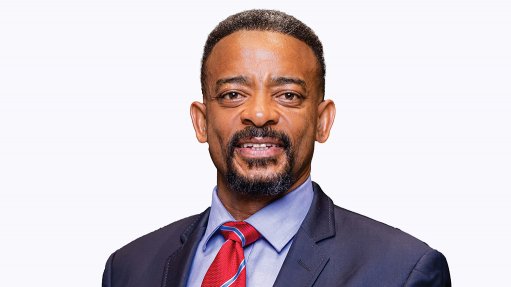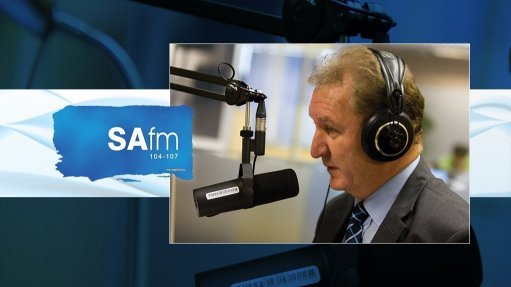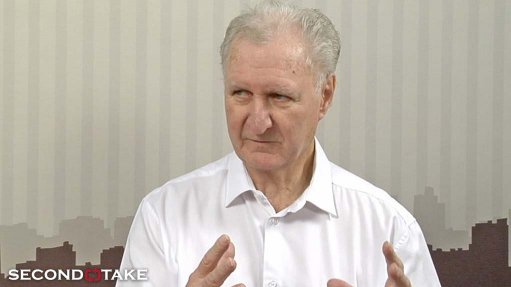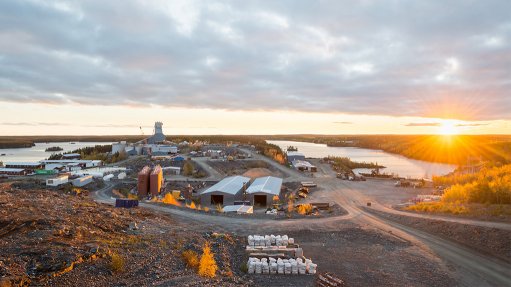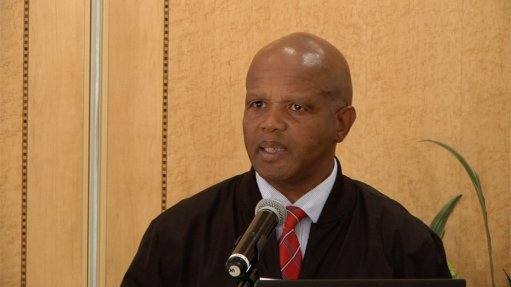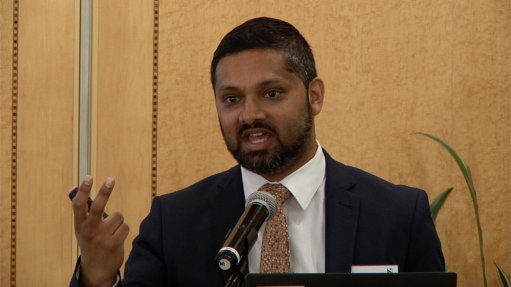Africa unlikely to meet its 2025 water goals – report
A new report by the African Ministers’ Council on Water (Amcow) indicates that, as a continent, Africa is off-track to achieve agreed-upon goals on water and sanitation.
The 2022 Africa Water and Sanitation Report, to which 44 African Union (AU) Member States contributed through self-assessments, found that there is an urgent need to revitalise efforts to optimise the socioeconomic development potential of Africa’s water resources for wellbeing, industrialisation, job creation, trade and regional integration.
“A great deal needs to be done to improve access to potable water and safely managed sanitation services in Africa,” the report warned, noting that analysis shows that over 400-million people in Africa do not have access to potable water, about 800-million people across the continent do not have access to safely managed sanitation and basic hygiene services and 18% still practise open defecation.
“Beyond water’s essential role as drinking water for maintaining healthy biological function and use in sanitation, it is a necessity for a multitude of economic sectors: energy, agriculture, fisheries and transport, to name a few. Water is therefore a prerequisite, enabling factor and outcome of nearly all of the Sustainable Development Goals,” the report outlined.
The economic benefits, depending on country, of investing in clean water and sanitation have been estimated to range from $3 to $34 for each dollar spent and the proper management of water resources is central to the efforts of any member State for eradicating poverty, promoting peace and prosperity and boosting socioeconomic development.
The report’s analysis of the information provided by the 44 member States revealed that the amount of money allocated to water supply, sanitation and hygiene (Wash) services and its subsectors in member States is “extremely low” relative to other economic sectors.
While there was an improvement in the year-on-year median value of the percentage of gross domestic product (GDP) allocated to water and sanitation from 0.1% to 0.25% between 2021 and 2022, this is significantly less than the water sector funding target of 0.5%.
The report outlined that four member States, namely South Africa, Togo, Zimbabwe and Senegal, reported having met the target of allocating at least 0.5% of GDP to the water and sanitation sector, while five member States, namely Namibia, South Africa, Togo, Senegal and Zimbabwe, reported allocating at least 5% of the national Budget to Wash.
Further, there are still funding inequalities between subsectors of Wash, with about 87% of all allocations going towards water supply, while only 12% is allocated to sanitation and 1% to hygiene.
The report showed a notable improvement in the proportion of the African population with access to safely managed water and sanitation; however, at the current rate of progress, Africa will not achieve universal access to safe water and safely managed sanitation until 2085.
“The overall rate of member States’ progress is slower than required to achieve universal access to safe water supply, safely managed sanitation and basic hygiene [and eliminating open defecation in Africa by 2030],” Amcow outlined in the report.
According to Amcow, coverage for safe drinking water services currently reaches 68.5% of the population of the reporting member States; however, only 12 member States, namely Botswana, Cameroon, Central African Republic, Côte d’Ivoire, Egypt, Gabon, Libya, Nigeria, Senegal, Tunisia, Uganda and the Democratic Republic of the Congo (DRC), are on track to provide universal coverage by 2030.
While the delivery of safely managed sanitation services is generally improving in Africa, with significant progress reported by Zambia, Côte d’Ivoire, Egypt, Libya and Senegal, there was a continentwide increase of 6% in the practice of open defecation in 2022, with indications that over 18.32% of the population still practises open defecation.
It is only in South Africa, Rwanda, Tanzania, Zambia, DRC, eSwatini and Gabon where it is reported that open defecation has been brought down to less than 5% of the population.
Despite some of the setbacks reported, notable improvements are being seen across Africa, with significant progress being made towards achieving effective transboundary water governance through consensual and joint establishment of transboundary water institutions at the regional level.
In addition, the principles of Integrated Water Resources Management (IWRM) are becoming more prominent in Africa, exemplified by the formulation of policies, improved management instruments and increased measures for financing transboundary cooperation, as well as ensuring broad stakeholder participation at all levels, the report outlined.
“Subsequently, the institutional capacity to assure water security in Africa seems to be on the rise.”
The overall picture on IWRM implementation across the member States is generally satisfactory, with Ghana, Rwanda, Niger, Tanzania, Uganda, Zimbabwe and Mali reporting very positive progress.
“Information received from South Sudan, Comoros and Gabon indicates adoption of the IWRM approach into environmental decision-making, albeit with limited operationalisation across the country.”
Comments
Press Office
Announcements
What's On
Subscribe to improve your user experience...
Option 1 (equivalent of R125 a month):
Receive a weekly copy of Creamer Media's Engineering News & Mining Weekly magazine
(print copy for those in South Africa and e-magazine for those outside of South Africa)
Receive daily email newsletters
Access to full search results
Access archive of magazine back copies
Access to Projects in Progress
Access to ONE Research Report of your choice in PDF format
Option 2 (equivalent of R375 a month):
All benefits from Option 1
PLUS
Access to Creamer Media's Research Channel Africa for ALL Research Reports, in PDF format, on various industrial and mining sectors
including Electricity; Water; Energy Transition; Hydrogen; Roads, Rail and Ports; Coal; Gold; Platinum; Battery Metals; etc.
Already a subscriber?
Forgotten your password?
Receive weekly copy of Creamer Media's Engineering News & Mining Weekly magazine (print copy for those in South Africa and e-magazine for those outside of South Africa)
➕
Recieve daily email newsletters
➕
Access to full search results
➕
Access archive of magazine back copies
➕
Access to Projects in Progress
➕
Access to ONE Research Report of your choice in PDF format
RESEARCH CHANNEL AFRICA
R4500 (equivalent of R375 a month)
SUBSCRIBEAll benefits from Option 1
➕
Access to Creamer Media's Research Channel Africa for ALL Research Reports on various industrial and mining sectors, in PDF format, including on:
Electricity
➕
Water
➕
Energy Transition
➕
Hydrogen
➕
Roads, Rail and Ports
➕
Coal
➕
Gold
➕
Platinum
➕
Battery Metals
➕
etc.
Receive all benefits from Option 1 or Option 2 delivered to numerous people at your company
➕
Multiple User names and Passwords for simultaneous log-ins
➕
Intranet integration access to all in your organisation







